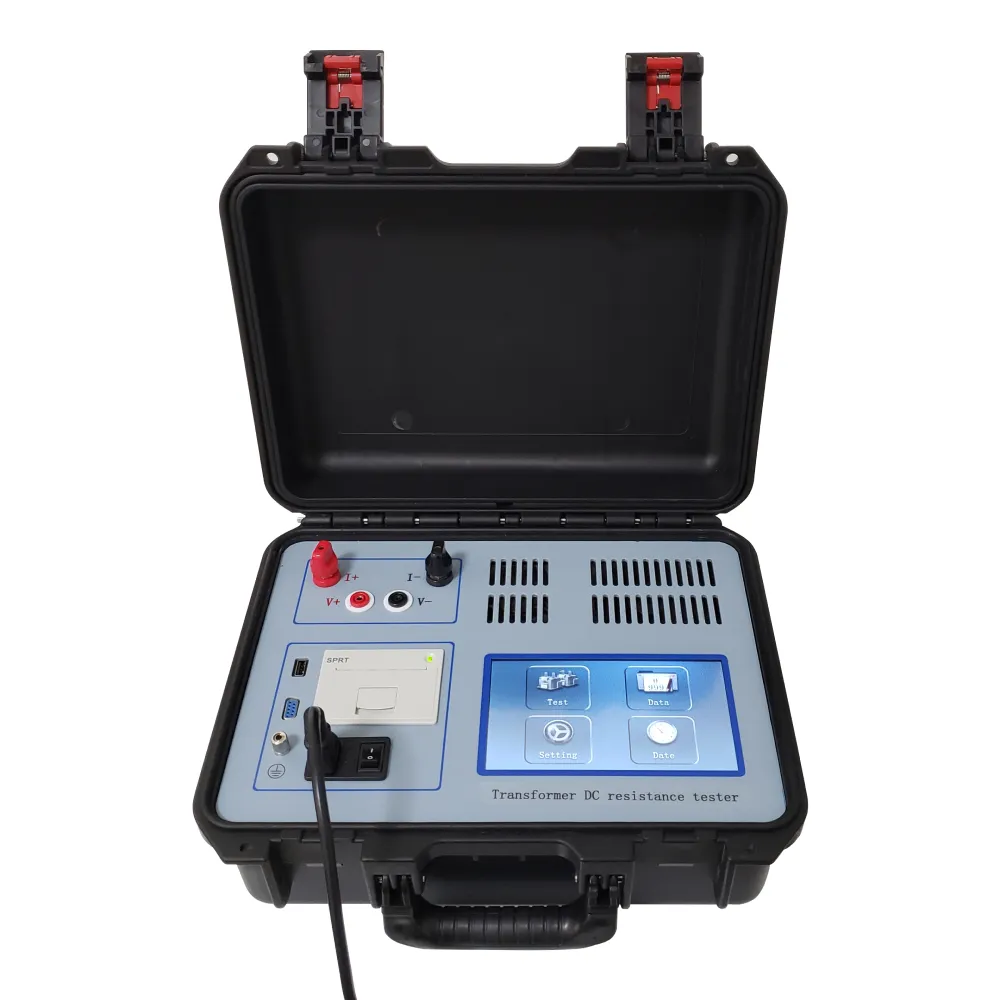TEL:
+86-0312-3189593
 English
English

Telephone:0312-3189593

Email:sales@oil-tester.com
7 月 . 11, 2024 06:05
Back to list
Evaluation of dielectric oil properties through rigorous testing and analysis techniques
Testing of insulating oil is a critical aspect of maintaining electrical equipment in a safe and efficient working condition. Insulating oil is used in transformers and other electrical equipment to provide insulation and cooling. Over time, insulating oil can degrade due to factors such as heat, oxygen exposure, moisture, and the presence of contaminants. When insulating oil degrades, it can lead to a decrease in the equipment's performance and potentially cause electrical failures.
To prevent equipment failure and ensure the longevity of electrical equipment, regular testing of insulating oil is essential. Testing of insulating oil involves analyzing various properties of the oil to determine if it is still suitable for use. Some of the common tests conducted on insulating oil include
- Dissolved gas analysis This test is used to detect gases that are dissolved in the oil, which can indicate if there are any internal faults in the equipment.
- Dielectric strength test This test measures the ability of the insulating oil to withstand electrical stress without breaking down.
- Moisture content test This test determines the amount of moisture present in the insulating oil, which can degrade the oil and decrease its insulating properties.
- Acid number test This test measures the acidity of the insulating oil, which can indicate if the oil is breaking down due to oxidation.
- Flash point test This test measures the temperature at which the insulating oil will ignite when exposed to a flame, indicating its flammability

testing of insulating oil. Regular testing of insulating oil can help identify potential issues before they lead to equipment failure. It can also help determine when the insulating oil needs to be replaced to ensure the safety and efficiency of the electrical equipment. By monitoring the condition of insulating oil through regular testing, maintenance costs can be reduced, and equipment downtime can be minimized. In addition to regular testing, proper storage and handling of insulating oil are also essential to ensure its effectiveness. Insulating oil should be stored in a clean, dry environment to prevent contamination and degradation. It should also be handled with care to minimize the introduction of contaminants and moisture. Overall, testing of insulating oil is crucial for maintaining the reliability and safety of electrical equipment. By regularly monitoring the condition of insulating oil and conducting appropriate tests, potential issues can be identified and addressed before they escalate into major problems. Proper maintenance of insulating oil can extend the life of electrical equipment and prevent costly repairs and downtime.

testing of insulating oil. Regular testing of insulating oil can help identify potential issues before they lead to equipment failure. It can also help determine when the insulating oil needs to be replaced to ensure the safety and efficiency of the electrical equipment. By monitoring the condition of insulating oil through regular testing, maintenance costs can be reduced, and equipment downtime can be minimized. In addition to regular testing, proper storage and handling of insulating oil are also essential to ensure its effectiveness. Insulating oil should be stored in a clean, dry environment to prevent contamination and degradation. It should also be handled with care to minimize the introduction of contaminants and moisture. Overall, testing of insulating oil is crucial for maintaining the reliability and safety of electrical equipment. By regularly monitoring the condition of insulating oil and conducting appropriate tests, potential issues can be identified and addressed before they escalate into major problems. Proper maintenance of insulating oil can extend the life of electrical equipment and prevent costly repairs and downtime.
Previous:
Latest news
-
Differences between open cup flash point tester and closed cup flash point testerNewsOct.31,2024
-
The Reliable Load Tap ChangerNewsOct.23,2024
-
The Essential Guide to Hipot TestersNewsOct.23,2024
-
The Digital Insulation TesterNewsOct.23,2024
-
The Best Earth Loop Impedance Tester for SaleNewsOct.23,2024
-
Tan Delta Tester--The Essential Tool for Electrical Insulation TestingNewsOct.23,2024





